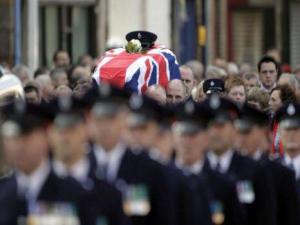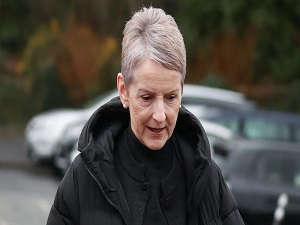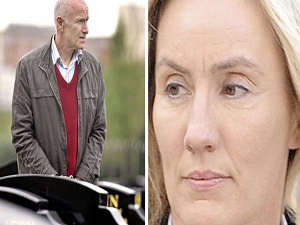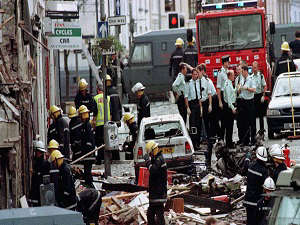
By PA reporter
A trial over the killing of a prison officer in Northern Ireland has collapsed.
David Black, 52, died following a motorway drive-by shooting in Co Armagh in November 2012. A dissident republican organisation calling itself the IRA said it carried out the murder.
Damien McLaughlin, 41, was accused of aiding and abetting murder, possession of articles for use in terrorism, preparation of terrorist acts and belonging to a proscribed organisation.
He will walk free after prosecutors decided not to appeal against a judge's ruling that part of the evidence was unsafe.
Mr McLaughlin, from Kilmascally Road, Dungannon, Co Tyrone, appeared at Belfast Crown Court at the city centre Laganside complex on Thursday.
He wore a grey pullover, was bearded and was flanked by prison officers.
The prosecution case against him rested on the evidence of Stephen Brady, who was interviewed by Irish police.
Mr Brady allegedly identified Mr McLaughlin as the man who moved a Toyota Camry car, later allegedly used by the gunmen to carry out the ambush of Mr Black.
Earlier this week the judge, Mr Justice Adrian Colton, said: "The risk of unreliability of Brady's statements is such that they should not be admitted by way of hearsay."
He said the profanities used by the interviewers were "excessive and oppressive".
The judge said the interviews were conducted in such a way as to "undermine" the suspect's right to silence.
"In the course of the interviews the suspect was the subject of threats and inducements.
"I am not satisfied that it is in the interests of justice for the hearsay evidence to be admitted.
"To the contrary, because of the particular circumstances in which the evidence was obtained, I consider that it is necessary in the interests of justice that it should not be admitted and that a trial depending upon it should not be allowed to proceed because any conviction based on that evidence would be unsafe."
Mr Black was a father-of-two from Cookstown.
On Thursday, Judge Colton told the court: "I direct that a not guilty verdict be entered in respect of this accused."
A Public Prosecution Service barrister said he had given the matter "earnest consideration", and added:
"I do not make an application to your lordship for leave to appeal the ruling.
"We will offer no further evidence in respect of any of the offences."


 Judge wants all sides to work towards November trial date for Donaldsons
Judge wants all sides to work towards November trial date for Donaldsons
 Viable device discovered inside residential address in Newtownards
Viable device discovered inside residential address in Newtownards
 Schools may be instructed to set up SEN provision amid crisis over places
Schools may be instructed to set up SEN provision amid crisis over places
 Double killer Hazel Stewart fails in bid to have sentence reduced
Double killer Hazel Stewart fails in bid to have sentence reduced
 Omagh inquiry told pace of disclosure ‘must increase’
Omagh inquiry told pace of disclosure ‘must increase’